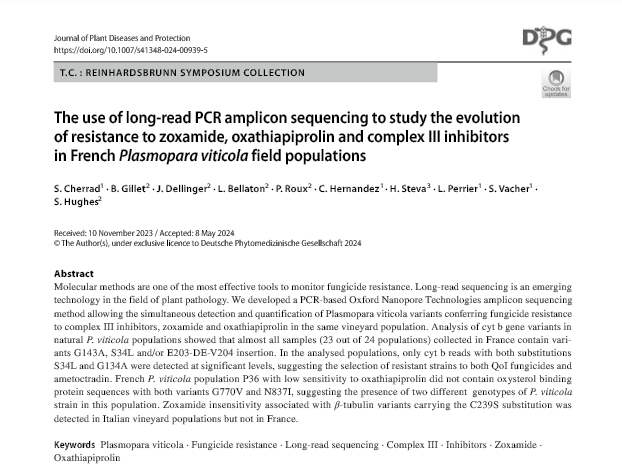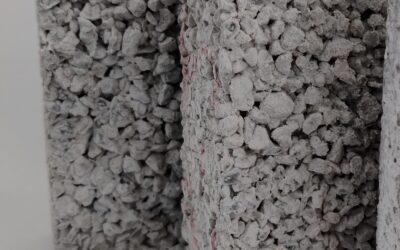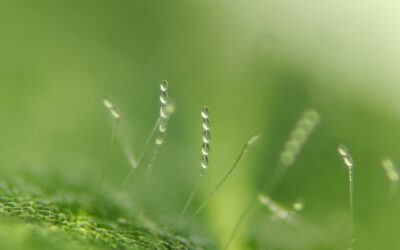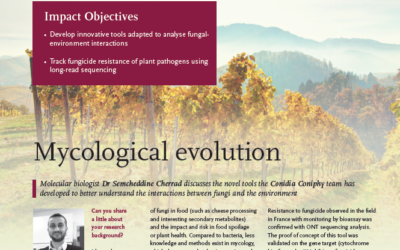A Groundbreaking Study on Fungal Resistance
Our R&D team has developed a new method for detecting mutations in some plant pathogens, enabling a crucial advance in disease treatment.

Our latest scientific publication, “The use of long-read PCR amplicon sequencing to study the evolution of resistance to zoxamide, oxathiapiprolin, and complex III inhibitors in French Plasmopara viticola field populations” represents a milestone in agricultural research. Published in the Journal of Plant Diseases and Protection, this research highlights the unprecedented effectiveness of the next-generation sequencing (NGS) method based on Oxford Nanopore technology.
Detection of fungicide resistance variants
The study successfully detected and quantified with remarkable precision the resistance variants to fungicides in P. viticola. By employing this third-generation NGS approach, we observed that nearly all sampled populations in France (23 out of 24) exhibited mutations such as G143A, S34L, and/or the insertion E203-DE-V204 in the cyt b gene, involved in resistance to fungal treatments.
A new approach to treatment control
This scientific breakthrough offers considerable benefits for the management of fungicide resistance in vine diseases. The speed and accuracy of long-read PCR amplicon sequencing allow farmers and researchers to respond more effectively to the emergence of resistances, ensuring better crop protection and more sustainable agriculture.
We invite the scientific community and agricultural professionals to consult our full article to discover how the NGS methodology can transform the fight against plant diseases.
To read the publication, clic here.
Conidia-Coniphy: At the Heart of Innovation for Resilient Agriculture.
Our solutions associated with NGS technology
idetect
Phytosanitary product testing
Related articles
Bio-based Materials: Eco-friendly Allies, but What Are the Risks of Mold?
In response to the climate emergency, the construction sector is turning to more environmentally friendly solutions. Bio-based materials are emerging as sustainable alternatives to reduce the carbon footprint of buildings. However, these natural materials also present challenges, particularly in terms of moisture management and mold risks. This article explores the strengths and limitations of bio-based materials.
Powdery Mildew on Grapevines: How to Recognize, Prevent, and Treat This Dreaded Disease?
Interview with Semcheddine Cherrad on Our Innovations in Molecular Biology
Let's work together !
If you have any needs or questions about environmental microbiology, contact us and we'll provide you with the answers you need.



